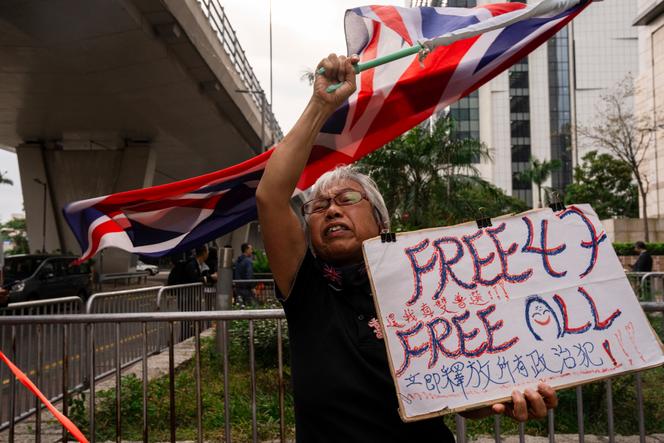


The outsize trial of pro-democracy activists, the "Hong Kong 47" who participated in the 2020 opposition primary, came to a close on Monday, December 4, in Hong Kong's largest court, in West Kowloon. The closing arguments from the prosecution and the defense were delivered, with the verdict expected in between three to four months' time.
Behind the thick glass of the dock, there were only 16 defendants over the last few days: the only ones to have pleaded not guilty to "conspiracy to commit subversion." The crime is punishable by life imprisonment under Article 22 of the new National Security Law (NSL) imposed by Beijing in June 2020, following the major protest movement that shook Hong Kong the previous summer, to eradicate any hint of opposition or dissent.
They include veteran legislators Lam Cheuk-ting, 46, of the Democratic Party, and Leung Kwok-hung, nicknamed "Long Hair," 67, of the League of Social Democrats, as well as the journalist Gwyneth Ho, 33, who decided to enter politics after being brutally assaulted by gangsters on July 21, 2019, at Yuen Long metro station. These defendants were surrounded by security guards in khaki, who had escorted them from their respective prisons. Three-quarters of the 47 defendants have been in pre-trial detention since their indictment in February 2021.
Alongside these figures from "former" political life, there were also a number of faces less well known to the public, citizens who simply wanted to try their luck in the legislative elections scheduled for September 2020 and who, for this reason, took part in the primaries. Clarisse Yeung, 36, is a fine arts graduate who intended to highlight local culture, environmental protection and animal welfare, elected in 2015 to the Wan Chai district council; Helena Wong, 64, is a former Democratic Party legislator who launched a public health alert in 2015 on the contamination of running water; or the lawyer and writer Lawrence Lau, 55, who defended himself. They are among a dozen of the 47 defendants who have been released on bail.
Under the surveillance of multiple cameras fixed to the walls and ceiling, the three judges, wearing red and black robes and silk wigs, faced around 15 lawyers in white collars and black robes, also wearing wigs. Although the trial took place under the new NSL, the customs of Common Law, the legal system that has always prevailed in Hong Kong, persist. Some Western diplomats were present in the public gallery.
"Those who have pleaded not guilty did so because they believe they have a real chance of being acquitted considering their involvement that was so minimal," explained the lawyer of one of the accused, who asked not to be named, speaking with Le Monde. "But it does not mean that those who have pleaded guilty believe they are guilty of 'conspiracy or subversion,' no way. It is simply because they have lost confidence in the Hong Kong justice system and they worked out that since they are likely to be found guilty, might as well take advantage of the one-third reduction in sentence automatically granted to those who plead guilty."
You have 60% of this article left to read. The rest is for subscribers only.
